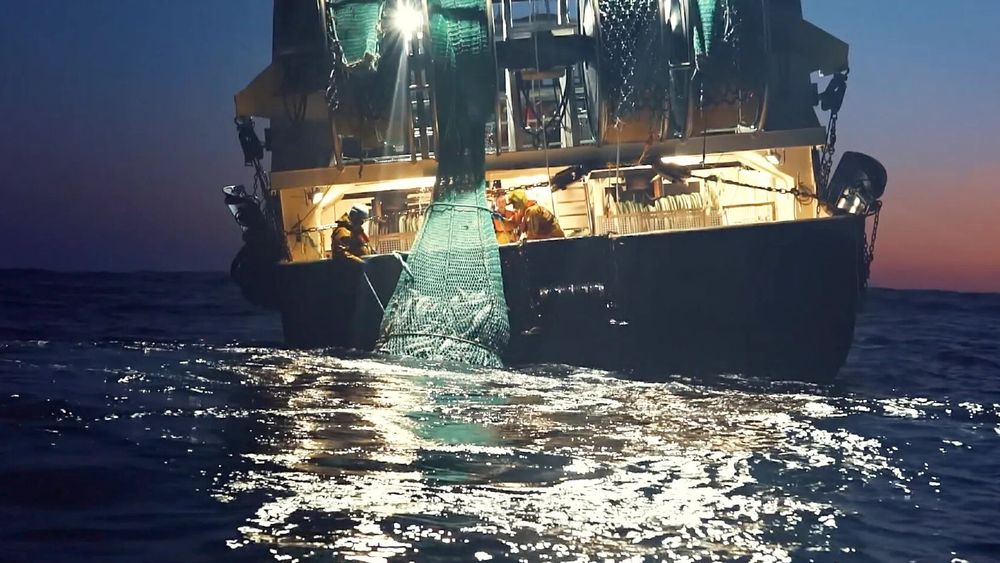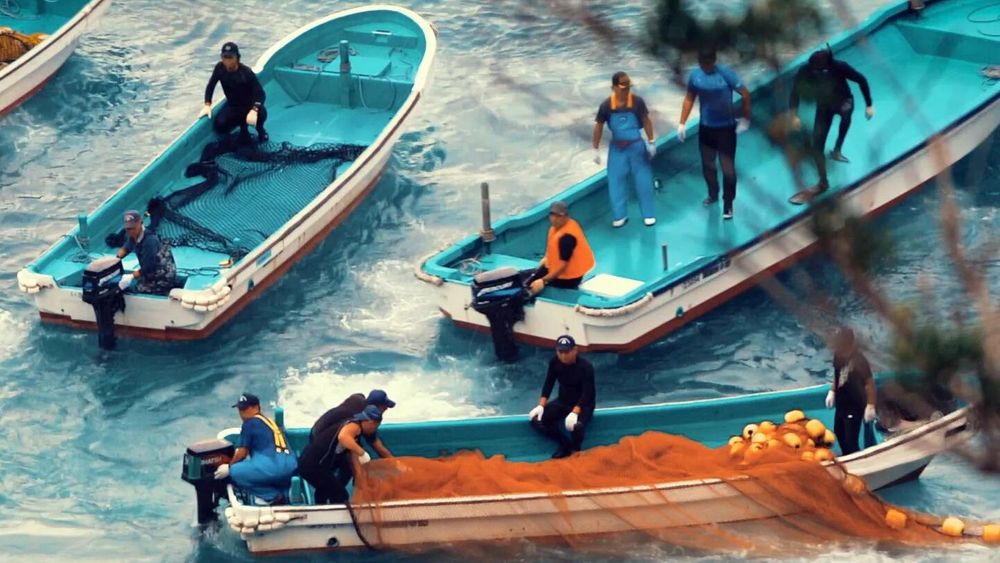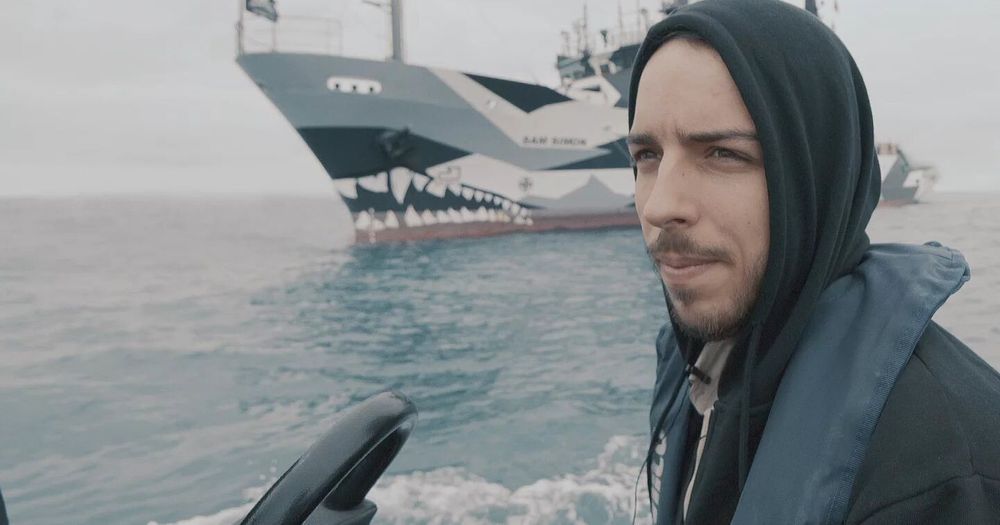Seaspiracy is a new Netflix series detailing the environmental impact of fishing. The documentary was created by the same team that created the eye-opening 2014 documentary Cowspiracy: The Sustainability Secret. Seaspiracy examines the impact of plastic in oceans and the effect of overfishing on marine populations around the world.
The documentary has risen to the Top 10 most-watched films and programs on Netflix, and it has received plaudits from celebrities such as Bryan Adams and Chris Froome. Conversely, the film has attracted criticism from environmentalists who accuse the documentary of spreading falsehoods.
In this article, we look at the shocking allegations in Seaspiracy, the criticisms it has received, and the response by its director Ali Tabrizi.
The documentary alleges that unregulated commercial fishing threatens marine ecosystems

Seaspiracy alleges that the concept of sustainable fishing is a lie and that sustainable fish certifications are obtained fraudulently. Mark J. Palmer of Earth Island Institute, the organization that manages the ‘dolphin safe’ authentication, had this to say when asked whether every tin of fish with the ‘dolphin-safe’ label is actually dolphin safe:
“Nope. Nobody can. Once you’re out there in the ocean, how do you know what they’re doing? We have observers on board – observers can be bribed.”
The documentary also concludes that farmed fisheries are not the haven that they are made out to be. People believe that farmed fisheries are eco-friendlier than wild fishing as they don’t impact wild populations. However, Seaspiracy reveals that some farmed fish are fed wild-caught fish. One expert describes fish farming as ‘wild fishing in disguise.’
The conditions of some of the fish farms are shown to be quite appalling. We see salmon being eaten alive by lice, while millions are allegedly dying in fish farms due to heart disease. The documentary debunks the myth that most of the plastic waste in oceans comes from drinking straws, instead alleging that the bulk of ocean plastic comes from fishing nets and equipment.
Perhaps the most shocking allegation in Seaspiracy is that slave labor is being used in Thailand to catch shrimps and prawns. The documentary chillingly labels the catch ‘blood shrimp’ due to its association with slavery. A former fisherman interviewed in the film alleges that he was threatened at gunpoint and that the dead bodies of fishermen were stored in fridges on their ship.
Organizations and experts quoted in Seaspiracy have refuted some of the allegations in the documentary

The Marine Stewardship Council was among the first to step forward in disapproval of the allegations made in Seaspiracy. The documentary quoted a 2006 study that concluded that oceans would be empty by 2048. The forecast’s author contradicted the conclusion of that study in 2009. In a statement, the MSC insisted that marine life has proven that it can recover if taken care of properly. The statement read:
“This is wrong. One of the amazing things about our oceans is that fish stocks can recover and replenish if they are managed carefully for the long-term. Examples of where this has happened and stocks have come back from the brink include the Patagonian tooth fish in the Southern Oceans or the recovery of Namibian hake, after years of overfishing by foreign fleets.”
The MSC also refuted the claim that its certification is not credible. It affirmed that certification is not easy and that most fisheries around the world compare themselves by MSC’s standards. “In fact, our analysis shows that the vast majority of fisheries that carry out pre-assessments against our criteria, do not meet these and need to make significant improvements to gain certification,” the MSC added.
The International Marine Mammal Project swiftly refuted the allegation that the Dolphin Safe Label is a sham. It stated that Seaspiracy had grossly mischaracterized the aims of the label. In a statement, the project’s director David Phillips praised the project’s efforts in reducing dolphin-kill levels by ‘more than 95 percent.’
Environmental social scientist Christina Hicks expressed her displeasure at the film via Twitter. “Unnerving to discover your cameo in a film slamming an industry you love & have committed your career to,” she wrote. “Yes there are issues but also progress & fish remain critical to food & nutrition security in many vulnerable geographies.”
Dr. Bryce Stewart of the University of York echoed Christina Hicks’ statements. He agreed that the film uncovered important issues, but highlighted that it is ‘misleading at the same time’. “It regularly exaggerates & makes links where there aren’t any,” he wrote on Twitter.
Ali Tabrizi has responded to the critics stating that the documentary wasn’t meant to be scientifically accurate

Even before Ali responded to the critics, Professor Callum Roberts of the University of Exeter spoke in admiration of the documentary. Roberts, who made the statements before watching the production, stated that it wasn’t made for scientific purposes. Per The Guardian, Callum said:
“My colleagues may rue the statistics, but the basic thrust of it is we are doing a huge amount of damage to the ocean and that’s true. At some point you run out. Whether it’s 2048 or 2079, the question is: ‘Is the trajectory in the wrong direction or the right direction?’”
Ali Tabrizi came out in defense of the documentary, affirming that Mark J. Palmer’s statements weren’t taken out of context. “We asked if they could guarantee ‘Dolphin Safe’ tuna is in fact dolphin safe, to which Mark Palmer replied that they could not guarantee it, and that their observers, who oversee these fishing vessels some of time, can be bribed,” Ali told The Guardian.
Tabrizi stated that he was grateful for Christina Hicks’ contribution but stated that it was ‘unrealistic’ to expect everyone to accept the documentary’s findings. Ali also addressed the use of the debunked 2048 statistic saying:
“We are not scientists nor did we claim to be. Despite there being some confusion about this particular projection, the overall state of fisheries are in severe decline.”